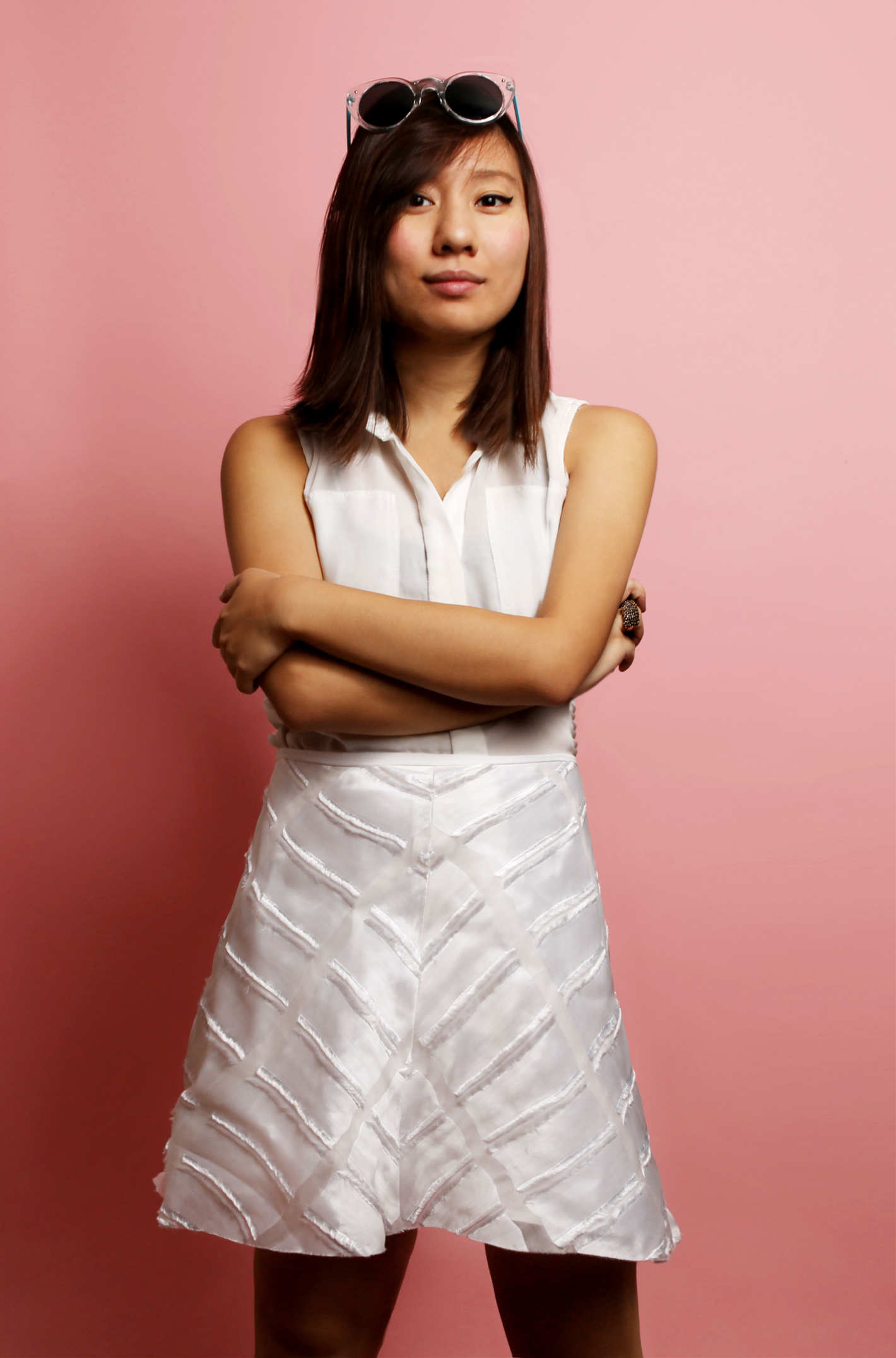Shirley Yu ( b.1994 in Beijing, China) is a New York City photographer. Yu’s parents have a background in a Computer Science. When making the decision to pursue photography full — time, Shirley promised to her parents and her self that she would ingrain the same work ethic required as she would in any other job. A graduate of the Computer Science Program at Rutgers University, Yu merges the technical with creativity. Yu’s hard work has paid off. Recipient of many awards, Yu has also been featured in numerous publications such as Bloomberg Businessweek, Time, Muslimgirl and Cosmopolitan Mexico.
HA : How did you get into photography ?
SY : When I was a teenager, I used to hang out with my friends in the Barnes & Nobles, and sit around in the photography section. One day, I found this marvellous monograph from Richard Avedon that inspired me to start doing photography. When I started doing photography, I discovered a feeling of self-expression that I had never had before, but always needed.
HA : You’ve noted in previous articles that you wanted to study something other than photography during university in order to give yourself some leverage in the job market after university. Can you please elaborate on that?
SY : I didn’t study a practical subject to give me leverage in the job market, but my family thought it was important for me to have a degree that I could fall back on, if I needed to. So far, I’ve never needed to.



HA : Do you regret your decision on studying I.T. or Computer Science ?
SY : I wanted to study entrepreneurship because I would have liked it more. Maybe it would have been more relevant to my career. But I chickened out of business school. I wish that I had finished.
HA : Having a computer science background, what merits has it brought to your photography (in terms of mixing the technical with creativity) ?
SY : In my opinion, nothing beats the opportunity to have real world experience. My technical background made my early transition from photography assistant to digital tech very easy. When I learned how to digital tech (managing backup data storage, on-the-fly image processing, troubleshooting capture softwares), I was able to work on-set with working photographers on campaigns and editorials. Also, I was able to make more money from digital tech-ing than photography assisting, so it gave me more time / resources to expand my personal work.
HA : Coding, HTML can be perceived as a trade for “guys” in Silicon Valley. How can one make a concept such as “coding” interesting for those who may not be interested ?
SY : Hm, I guess it sounds more fun when you want to make something that everyone use(s), and be a boss. I mean, if my future daughter wanted to find out about STEM (Science Technology Engineering and Mathematics), I would tell her about how technology affects us and how it’s changed the world. It’s everywhere; music, entertainment, television, even the fashion industry (with apps like Swipecast). Technology isn’t a bunch of magic, secret, stuff. It’s cool people, like my parents, coding hardware and software that make peoples lives easier.
HA : Is there any challenges you’ve encountered by being a female photographer and how did you address such challenges ?
SY : When I started out, I realized that it was hard to get photography assisting jobs, because it’s based on the perception of strength (a male attribute). I addressed it by assisting a lot of female fashion photographers, also learning how to tech and produce.
HA : How would you describe your photography style ?
SY : Imaginative, light-hearted, and colorful.
HA : Where do you get your inspiration from ?
SY : I put a lot of my own spirit into my work. But it’s hard to use yourself, and be emotionally invested in your work, because you start associating your work with your identity and you have to be in the right emotional place to create. Unfortunately, sometimes if you have periods of time where you’re not okay with yourself, as a person, it becomes hard to function as an artist.
HA : For novices in photography — what are some software, cameras, lenses, computer etc. that you would recommend ?
SY : I would recommend the latest Canon EOS M, Adobe Creative Cloud, an iMac, a Wacom tablet, and Lacie external hard drives.


HA : From Francisco Lachowski to the cover of Time magazine, can you describe your transition from volunteer shoots to landing a cover on a reputable magazine ?
SY : The career moves are all about making genuine connections, networking face-to-face, and spending several years on follow-up. There’s no secret !

HA : What are some tips on landing gigs for an up and coming photographer ?
SY : Be critical of yourself, shoot every project better than the last, never stop showing your work, and become resilient to rejection.
HA : What is a major regret/mistake you’ve made in your career and what has that experience taught you ?
SY : When I started out, I shot what I thought other people wanted to see, because I wanted to work with more people. But I ended up shooting a lot of stuff I didn’t like, and so I learned that it’s better to be confident in your own style. This way, instead of finding more people, you’ll find the right people.
If you enjoyed this article don’t forget to heart ❤, share and/or like my Facebook Page !
This article was written for Digital Marketing Company Docs N’ Dots for the Women in Technology series.
Originally published at www.facebook.com.
Originally published at medium.com




